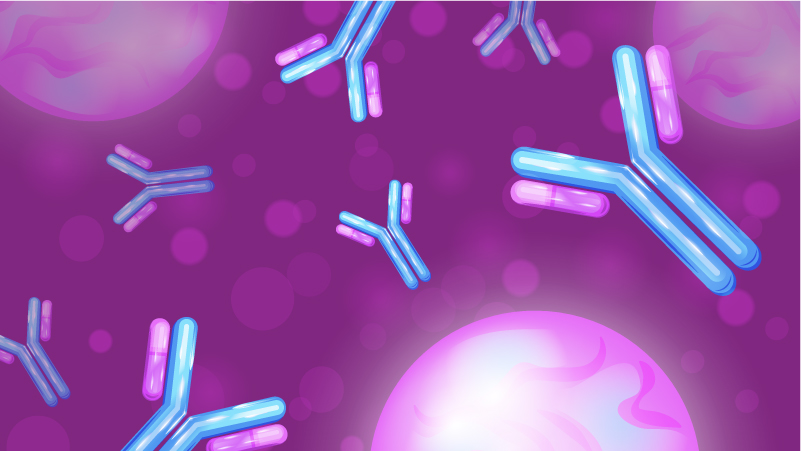Zeroing in on cancer cells:
new therapy promises cure
A clinical trial in Singapore seeks to redefine the battle
against cancer, leveraging a novel, targeted, and more
effective approach to immunotherapy for a potential cure.
Issue 1 | June 2023

 Subscribe and ensure you don't miss the next issue!
Subscribe and ensure you don't miss the next issue!
Immunotherapy, a new approach in cancer treatment, activates the body’s natural defences to pinpoint and eradicate cancer cells with remarkable precision—offering a promising alternative to traditional non-selective treatments like chemotherapy, which affects both cancerous and healthy cells.
However, immunotherapy does grapple with certain limitations. The crux of the issue lies in the cancer cells’ chameleon-like abilities to mimic healthy cells, camouflaging themselves from the immune system’s army of T cells—white blood cells that counter infections and diseases.
A new vanguard in immunotherapy
Amongst the immunotherapy techniques, chimeric antigen receptor (CAR)-T cell therapy has shown progress. It involves extracting and grafting artificial proteins onto a patient’s T cells, turning them into targeted cancer destroyers.
Yet, existing CAR-T cell therapies are hampered by their reliance on the patient’s T cells, which can become depleted and less effective following intensive cancer treatments—limiting their ability to combat the disease.
This pioneering trial, which commenced in April 2023, examines a new form of CAR-T cell therapy. The distinguishing factor? It uses T cells from healthy donors rather than from the patients themselves. This approach, known as allogeneic CAR-T cell therapy, capitalises on the stronger, more vibrant T cells of healthy donors, which are potentially more efficient in battling cancer.
The trial, which will run over two years, aims to recruit approximately twenty patients. The trial will recruit patients with any one of the six prevalent cancers in Singapore—lymphoma, multiple myeloma, colorectal cancer, lung cancer, liver cancer or ovarian cancer.
“CAR-T cell therapy holds the potential to be a new treatment for many patients facing limited options,” says Dr Esther Chan, a senior consultant at the Division of Haematology, Department of Haematology-Oncology, NCIS. “This is the first locally designed trial that uses an allogeneic method to modify cells to fight cancer.”
Better, faster, cheaper
For patients with high-risk, resistant or relapsed cancers, whose T cells are often depleted and weakened due to the repercussions of multiple treatments, this innovative therapy could be a game-changer.
Dr Tan Lip Kun, a senior consultant in the same department and one of the trial’s investigators, shares, “This allogeneic approach may well be the key to engineering and producing sufficient CAR-T cells to wage an effective battle against cancerous ones.”
Moreover, this therapy could also potentially diversify the spectrum of treatable cancers, including solid tumours, and reduce production costs, making the therapy more accessible and affordable to patients.
Safety takes precedence always
Rigorous screening procedures are in place for all potential donors, screening for infectious diseases and cell quality to acquire optimal starting material for CAR-T cell production.
“The therapy is also not designed to eclipse other treatment options,” explains Dr Raghav Sundar, principal investigator of the trial and consultant in the same department. “At this stage, the focus of the trial is to ensure safety and tolerability of the novel treatment option before expanding further into specific indications to using the treatment.”
The dawn of a new era in cancer treatment may be upon us with this allogeneic CAR-T cell therapy, potentially another potent weapon in our cancer-fighting arsenal, bringing us closer to a future where cancer can truly be defeated. Should the trial prove successful, plans are afoot to commercially launch the therapy in five to eight years.
Like this article? Simply subscribe to make sure you don't miss the next issue of EnvisioningHealth!